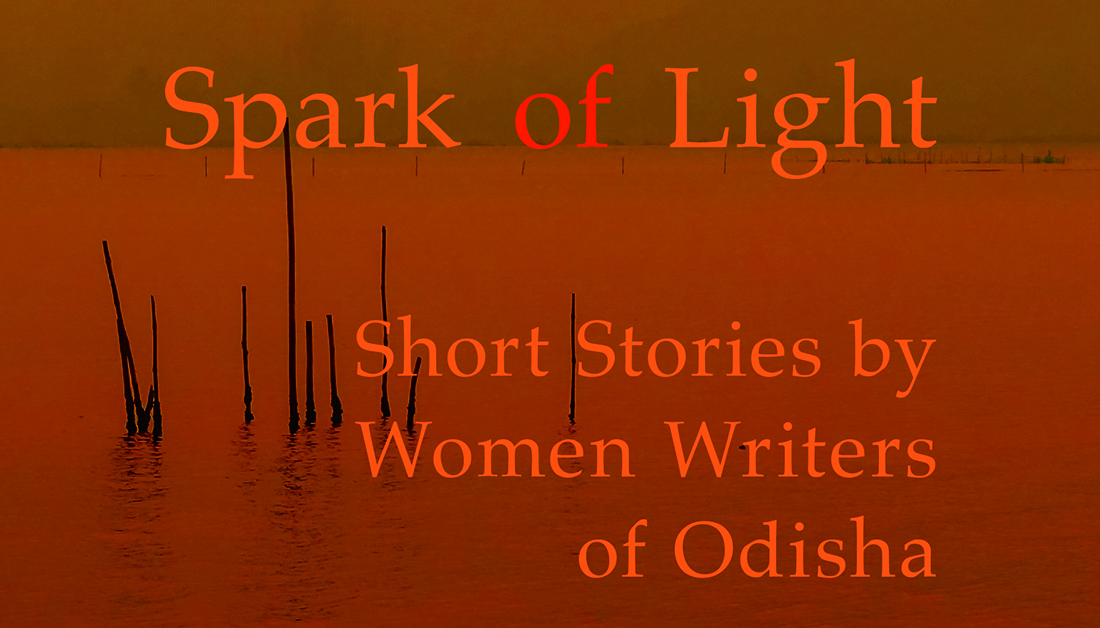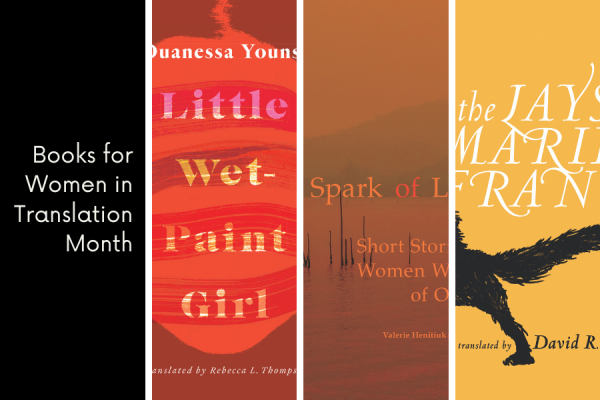“Odia literature is a treasure trove for translators, but not many venture into this field.”

Basanta Kumari Patnaik, author of In Bondage
The work of the women writers of Odisha, India contributes to an ongoing dialogue concerning the challenges and joys particular to a woman’s experience and demonstrates the great richness of Odishan literary culture. These short stories, originally written in Odishan, have been translated into English and collected into a new volume entitled Spark of Light. These stories offer a multiplicity of voices—some sentimental and melodramatic, others rebellious and bold—and capture the predicament of characters who often live on the margins of society in a shadowy and grim world.
We asked a few translators to comment on why they selected a particular story for translation. Read their comments and a short excerpt from the stories below!
The Mendicant by Reba Ray / translated by KK Mohapatra

KK Mohapatra
“Besides being a fair-skinned beauty—hardly anyone around could hold a candle to her—the girl was so graceful and well-mannered that everyone immediately fell for her. Perhaps because he did not have a daughter of his own, or because he was naturally generous of heart, or just because Parasamani’s sweet, innocent face was difficult to resist, Nityananda never missed a chance to express his affection for her. But sadly, despite her charms, the girl failed to gain even the smallest placein Ushabati’s heart.”
The Mendicant is historically significant: published in 1899, it was the first short story to appear in print by an Odia woman writer. That apart, it’s a remarkable story for breaking the stereotypical portrayal of women and dealing with the social issues of the late nineteenth century in Odisha. –KK Mohapatra
—
Ruins by Gayatri Basu Mallick / translated by Snehaprava Das

Snehaparva Das
“‘What is it that the madwoman keeps on saying—“Don’t you catch the birds” and “My son is left sitting on the canal bank.” What does it mean?’ I asked him.
A dark shadow of sorrow crossed his face as he answered. ‘It is quite sad a story, sir, and a long one too. Would you like to hear it?’”
I have always admired Gayatri Basu Mallick’s writing. This particular story is heart-wrenching; I was moved by the realistic portrayal of a helpless woman struck by tragedy and exploited by her own people. –Snehaprava Das
In Bondage by Basanta Kumari Patnaik / translated by Jatindra K. Nayak

Jatindra Nayak
“And what of me? Day and night I remained occupied with household work. Whenever I had any free time, I spent it knitting woollen sweaters. I now have a pile of pullovers. What am I going to do with these?”
Basanta Kumari’s stories are known for their irony, understated style, and stark depiction of domesticity. It is always a challenge to render Basanta Kumari Patnaik’s highly idiomatic prose into English. –Jatindra K. Nayak
Pata Dei by Binapani Mohanty / translated by Ashok K. Mohanty

Ashok Mohanty
“People say that Pata left in the depth of that night without any fear of the jackals, dogs, and wolves, the lurking ghosts and witches. She left the village that was swaying with the rhythm of devotional songs, cymbals, drums, and the voices of the excited crowd. She locked the house and went to watch the celebration. Nobody came to open the latched door or worry about where she had gone.”
Pata Dei is a path-breaking story in Odia literature. The helpless state of miserable women in our society has been described in vivid detail in the story. Pata Dei’s courageous and lonely stand against injustice and immorality is indeed laudatory. Her story exposes the real character of men who persecute women. Her resolve to face an uncertain and difficult future is rarely seen in Odia literature. –Ashok K. Mohanty
Moonrise by Supriya Panda / translated by Sumanyu Satpathy

Sumanyu Satpathy
“She observed the three murderers. They were young men in their early twenties. One of them was perhaps even younger. There was a hint of a beard on his chin. Another, with brown hair, was very fair-skinned. The third young man had cruel grey eyes. Snakelike, they hissed, “Why did you open the door? If you had not seen us you would have survived.”
On reading Supriya Panda’s story, I found the narrative’s imprecise setting rather enchanting. As it progressed, the action veered towards the strange and mysterious. As I sat down to translate it, the ending, which was unproblematic in the Odia original, appeared unsatisfactory. So I decided to slightly modify it after seeking due permission from the author. Thus the end configuration of the story as it appears in my translation is slightly different from the Odia original. –Sumanyu Satpathy
Read all the stories on our website.


